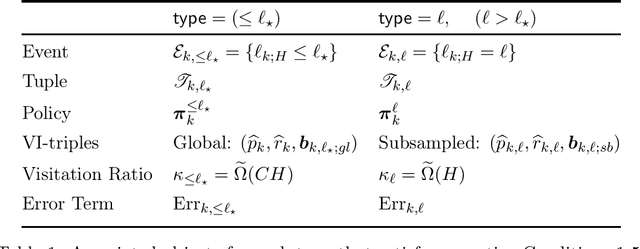Corruption Robust Exploration in Episodic Reinforcement Learning
Paper and Code
Nov 20, 2019
We initiate the study of multi-stage episodic reinforcement learning under adversarial manipulations in both the rewards and the transition probabilities of the underlying system. Existing efficient algorithms heavily rely on the "optimism under uncertainty" principle which dictates their behavior and does not allow flexibility to perform corruption-robust exploration. We address this by (i) departing from the optimistic behavior, and (ii) creating a general framework that incorporates the principle of action-elimination. (This principle has been essential for corruption-robust exploration in multi-armed bandits, a degenerate special case of episodic reinforcement learning.) Despite constructing a lower bound for a straightforward implementation of action-elimination, we provide a clean and modular way to transfer it to episodic reinforcement learning. Our algorithm enjoys near-optimal guarantees in the absence of adversarial manipulations, has performance that degrades gracefully as the amount of corruption increases, and does not need to know this amount. Our results shed new light on the broader question of robust exploration, and suggest a way to address a rather daunting mismatch between optimistic algorithms and algorithms with higher flexibility. To demonstrate the applicability of our framework, we provide a second instantiation thereof, showing how it can provide efficient guarantees for the stochastic setting, despite doing almost uniform exploration across plausibly optimal actions.
 Add to Chrome
Add to Chrome Add to Firefox
Add to Firefox Add to Edge
Add to Edge